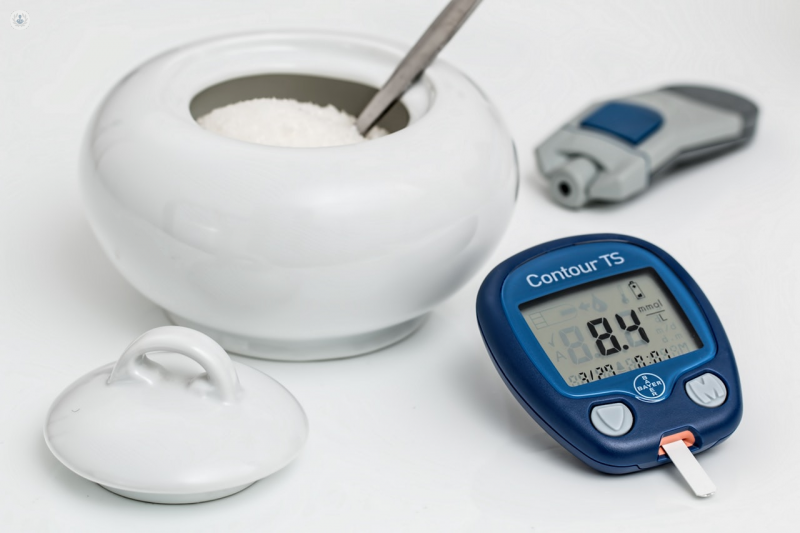Pre-diabetes
Dr John Bolodeoku - Endocrinology, diabetes & metabolism
Created on: 08-31-2017
Updated on: 02-07-2024
Edited by: Conor Lynch
What is pre-diabetes?
Pre-diabetes is a term for people who are at a greater risk of diabetes but do not yet have a diabetes diagnosis.

When is someone diagnosed with diabetes?
A person is diagnosed as having diabetes if they show symptoms such as passing urine often, excessive thirst, or unexplained weight loss, as well as abnormal blood sugar levels.
Our blood sugar levels fluctuate all of the time, but in someone with diabetes, the pancreas does not produce insulin properly. Insulin is responsible for converting sugar in the blood into energy. If the body is not producing enough insulin, your blood sugar levels will stay abnormally high.
Diagnosing diabetes involves carrying out different tests to look at what happens if you are given sugar, and what happens to your blood sugar levels over time. You are diagnosed with diabetes if you have:
- A fasting glucose level of ≥7.0mmol/l – this means that your blood sugar levels are high even after your body has had time to absorb sugar from food
- A glucose concentration ≥ 11.1 mmol/l two hours after 75g anhydrous glucose – this means your blood sugar is staying higher than it should even two hours after ingesting a large amount of sugar
Having specific “cut off points” like those outlined above is useful, because when researchers test new treatments on diabetes patients, it is easy to know which patients to include, and different studies can be compared to one another.
When is someone diagnosed with pre-diabetes?
The American Diabetes Association has a definition of pre-diabetes as abnormal glucose levels with the cut-off points for various blood sugar tests being lower than for diabetes. The term “pre-diabetes” was coined to identify people with a greater risk of developing diabetes due to already abnormal blood glucose levels.
However, you are very unlikely to receive a diagnosis of pre-diabetes in the UK. Neither the National Institute of Clinical Excellence nor the World Health Organisation recognises the term. This is because:
- The term pre-diabetes suggests a medical condition that eventually progresses to diabetes. At the moment, however, there is not enough evidence to suggest this is what happens.
- There are no specific treatments for pre-diabetes. You can reduce your risk of developing diabetes by making lifestyle changes, but so can people with normal blood glucose levels. Having a diagnosis of pre-diabetes does not change what you need to do to have a healthy lifestyle or reduce your risk of conditions such as heart disease or kidney disease.
Some doctors might suggest you have pre-diabetes as a motivational strategy to encourage you to adopt a healthier lifestyle, but this should not be taken as an official diagnosis.












